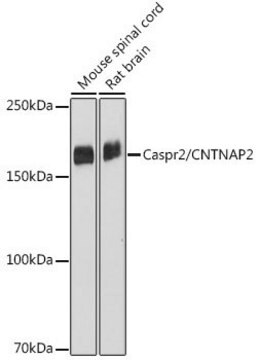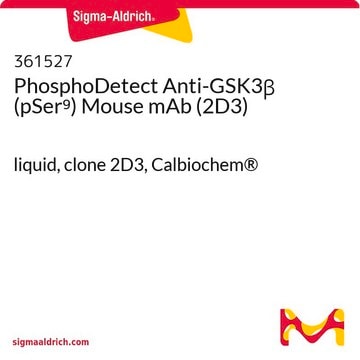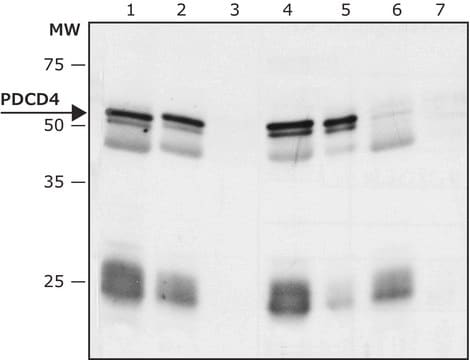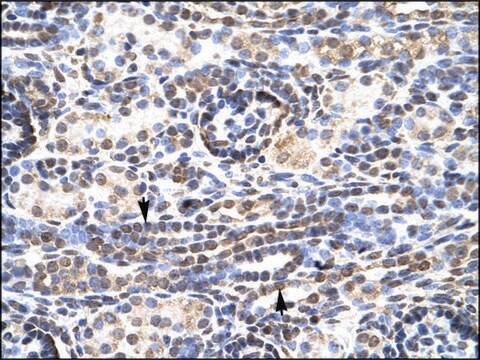AB15302-I
Anti-ProSAP2
Chemicon®, from rabbit
Sinonimo/i:
SH3 and multiple ankyrin repeat domains protein 3, Shank3, Proline-rich synapse-associated protein 2, SPANK-2
About This Item
Prodotti consigliati
Origine biologica
rabbit
Livello qualitativo
Forma dell’anticorpo
affinity isolated antibody
Tipo di anticorpo
primary antibodies
Clone
polyclonal
Purificato mediante
affinity chromatography
Reattività contro le specie
human, rat, mouse
Confezionamento
antibody small pack of 25 μg
Produttore/marchio commerciale
Chemicon®
tecniche
immunohistochemistry: suitable (paraffin)
western blot: suitable
N° accesso NCBI
N° accesso UniProt
modifica post-traduzionali bersaglio
unmodified
Informazioni sul gene
human ... SHANK3(85358)
rat ... Shank3(59312)
Descrizione generale
Specificità
Immunogeno
Applicazioni
Qualità
Western Blotting Analysis: 1 µg/mL of this antibody detected ProSAP2 in 10 µg of rat brain microsomal preparation.
Descrizione del bersaglio
Altre note
Note legali
Not finding the right product?
Try our Motore di ricerca dei prodotti.
Certificati d'analisi (COA)
Cerca il Certificati d'analisi (COA) digitando il numero di lotto/batch corrispondente. I numeri di lotto o di batch sono stampati sull'etichetta dei prodotti dopo la parola ‘Lotto’ o ‘Batch’.
Possiedi già questo prodotto?
I documenti relativi ai prodotti acquistati recentemente sono disponibili nell’Archivio dei documenti.
Il team dei nostri ricercatori vanta grande esperienza in tutte le aree della ricerca quali Life Science, scienza dei materiali, sintesi chimica, cromatografia, discipline analitiche, ecc..
Contatta l'Assistenza Tecnica.








